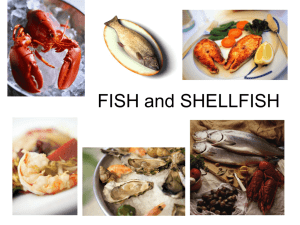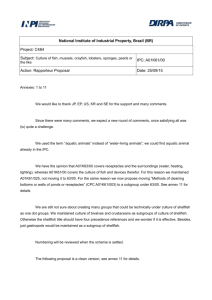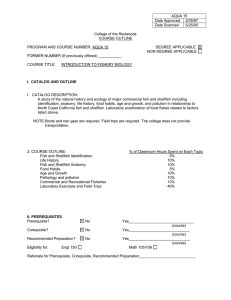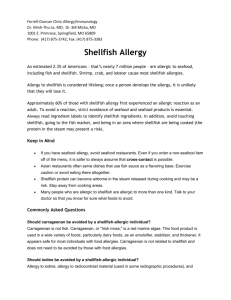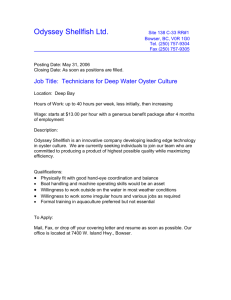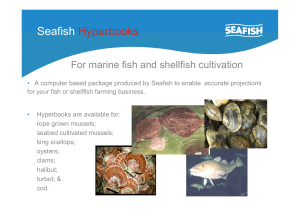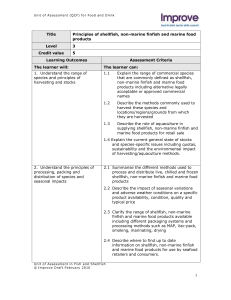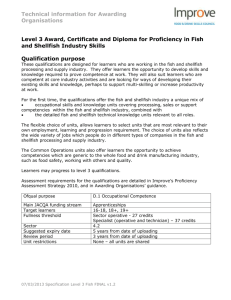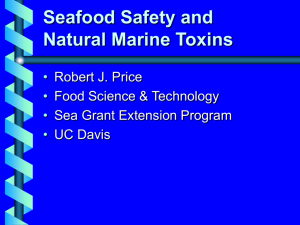70284Wales Food Strategy
advertisement
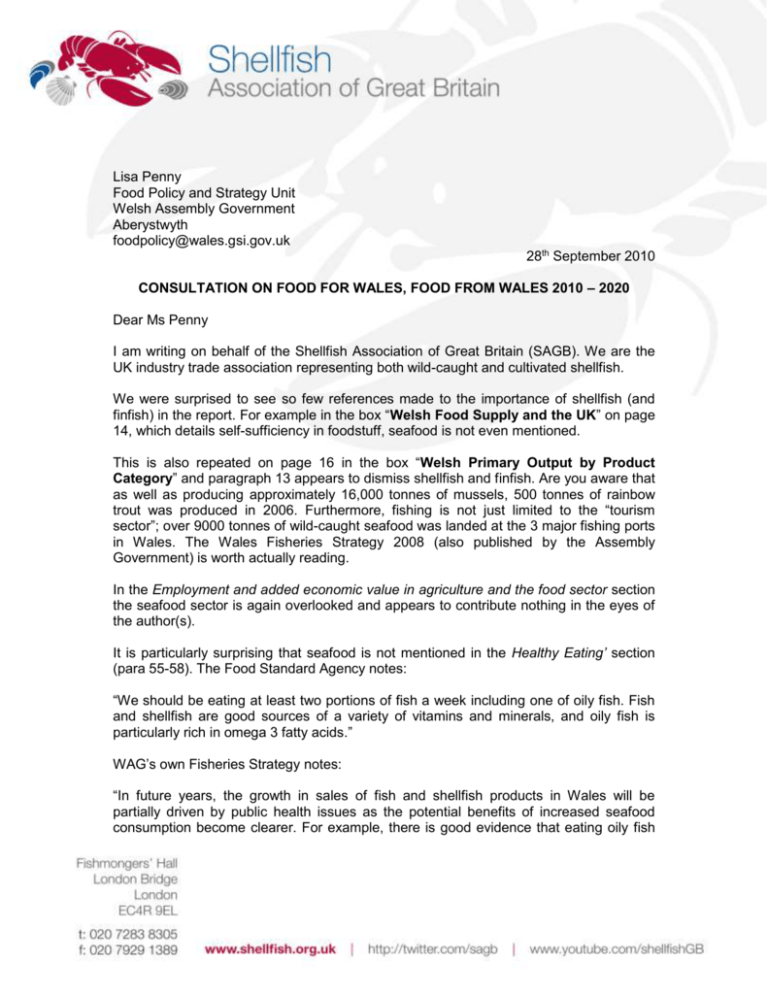
Lisa Penny Food Policy and Strategy Unit Welsh Assembly Government Aberystwyth foodpolicy@wales.gsi.gov.uk 28th September 2010 CONSULTATION ON FOOD FOR WALES, FOOD FROM WALES 2010 – 2020 Dear Ms Penny I am writing on behalf of the Shellfish Association of Great Britain (SAGB). We are the UK industry trade association representing both wild-caught and cultivated shellfish. We were surprised to see so few references made to the importance of shellfish (and finfish) in the report. For example in the box “Welsh Food Supply and the UK” on page 14, which details self-sufficiency in foodstuff, seafood is not even mentioned. This is also repeated on page 16 in the box “Welsh Primary Output by Product Category” and paragraph 13 appears to dismiss shellfish and finfish. Are you aware that as well as producing approximately 16,000 tonnes of mussels, 500 tonnes of rainbow trout was produced in 2006. Furthermore, fishing is not just limited to the “tourism sector”; over 9000 tonnes of wild-caught seafood was landed at the 3 major fishing ports in Wales. The Wales Fisheries Strategy 2008 (also published by the Assembly Government) is worth actually reading. In the Employment and added economic value in agriculture and the food sector section the seafood sector is again overlooked and appears to contribute nothing in the eyes of the author(s). It is particularly surprising that seafood is not mentioned in the Healthy Eating’ section (para 55-58). The Food Standard Agency notes: “We should be eating at least two portions of fish a week including one of oily fish. Fish and shellfish are good sources of a variety of vitamins and minerals, and oily fish is particularly rich in omega 3 fatty acids.” WAG’s own Fisheries Strategy notes: “In future years, the growth in sales of fish and shellfish products in Wales will be partially driven by public health issues as the potential benefits of increased seafood consumption become clearer. For example, there is good evidence that eating oily fish and shellfish reduces the risk of death from heart disease [and a host of other physical and mental illnesses], which killed 117,500 people in the UK during 2002 alone. On average, people in the UK eat a third of a portion of oily fish a week; seven out of ten don't eat any fish at all……One of the central components of this strategy is to encourage children to eat more fish and shellfish as part of their weekly diet, especially those containing omega-3 fatty acids. Fish [and shellfish] shall be available at least once a week in primary schools and at least twice per week in secondary schools…” We support your helpful summary; direction of the Food Strategy, on page 57 but remain concerned that the seafood sector will be overlooked and not benefit from any downstream work. The SAGB is available to assist you on ensuring inclusion of shellfish and shellfisheries and I am sure Seafish can offer the same help on both shellfish & finfish. Please do not hesitate to contact me if I can be of any assistance. Kind regards Dr Tom Pickerell Director Mob: : 07507 339156 tom@shellfish.org.uk

